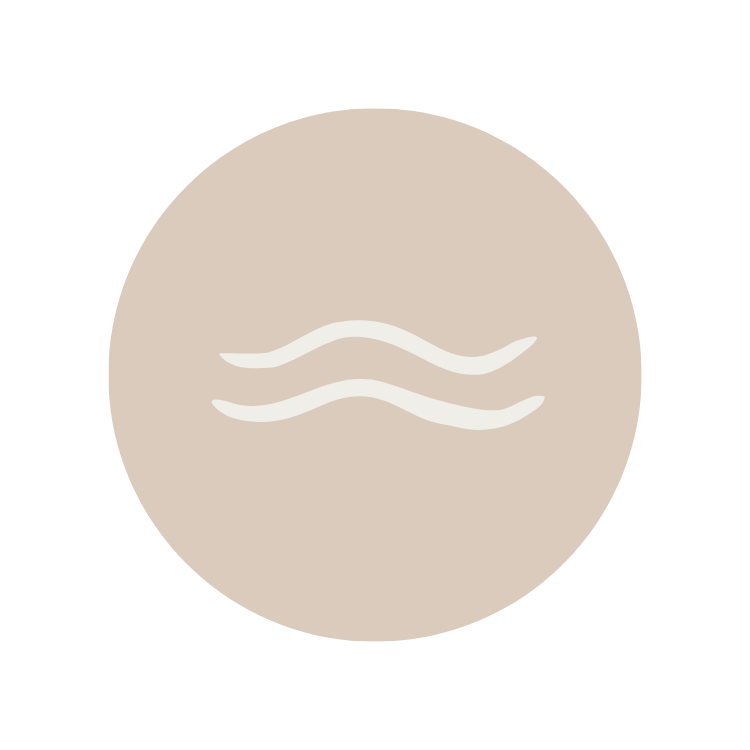Alcohol and Your Hormones - The Ultimate Guide
Alcohol's impact on your body and hormones is a subject of much debate and conflicting opinions. However, let's explore the evidence-based research to better understand its effects:
➡️ Liver🍋. Alcohol places a burden on the liver, hindering its ability to effectively detoxify substances like environmental toxins and excess hormones, such as estrogen.
➡️ Affects estrogen levels🌸. Even small amounts of alcohol can increase circulating estrogen levels, leading to problems like PMS symptoms (e.g., breast tenderness, moodiness, bloating, headaches) and heavy, painful periods.
➡️ Blood sugar🍪. Depending on the drink (sugary cocktails are the worst), alcohol can raise your blood sugar and contribute to insulin resistance. Heavy alcohol consumption is a risk factor for developing type 2 diabetes as well as the development of fatty liver.
➡️ Microbiome🦠. Alcohol disrupts the gut microbiome and can interfere with calcium and magnesium absorption.
➡️ Increases cortisol levels (stress hormone)😓. Alcohol affects the HPA axis and the secretion of adrenal stress hormones, with a greater impact on females than males. This can lead to issues with inflammation, healthy periods, and mood.
➡️ Fertility🤰🏻. 50% of social drinkers (3.8 drinks per week) had negative changes in reproductive hormones and menstrual cycles compared to people that had less than 3 drinks per week (increased prolactin, lower estrogen, irregular menstrual cycles). 60% of heavy drinks (7.8 drinks per week) had significant hormone and menstrual cycle changes (anovulatory cycles and high levels of prolactin). Long term moderate alcohol consumption was shown to decrease ovarian reserve and increase FSH levels (not good for fertility). It also leads to oxidative stress and ovarian tissue damage. Alcohol consumption decreases growth hormone which is another important factor for fertility. In men, excessive intake of alcohol significantly increased FSH, LH, and estrogen while decreasing testosterone. This caused lower semen analysis parameters (like count and motility).
➡️ Thyroid health🦋. Alcohol lowers T3 and T4 thyroid hormones, resulting in a blunted TSH response, which can lead to fatigue, weight gain, infertility, miscarriage, and period irregularities.
➡️ Circadian Rhythm⏰. There is a huge connection between alcohol consumption and circadian rhythm disruption. Your circadian rhythm, or your sleep/wake cycle, is an important regulator of sleep, body temperature, blood pressure, metabolism, and hormone secretion.
➡️ Inflammation🔥. Heavy alcohol drinking increases the risk of cardiovascular disease, liver disease, and certain cancers. Long-term alcohol use leads to chronic systemic inflammation and negatively affects the immune system.
👉Like with anything, dosage matters. Some people will be able to tolerate a few drinks per week, while others will notice symptoms immediately after consumption or the day after. Most people can tolerate 2-4 drinks per week without it having too much of a negative effect on their hormones, but it will depend on the person and how they metabolize alcohol.
It may also depend on the type of alcohol. Beer🍺 and sugary cocktails🍸 seem to be the worst offenders. Wine🍷 and spirits🥃 tend to have less of a negative effect.
👉This doesn’t mean you need to cut out alcohol entirely, just be mindful of how many drinks you consume in one day and make note of how it makes you feel (especially during your next period).
Alcohol also may affect you differently depending on where you are in your cycle🩸. Your luteal phase doesn’t have as much of the blood sugar stabilizing effects of high estrogen levels, so you may notice more of the negative effects of alcohol in the week or two before your period.
But it’s also important to nourish your spirit. I do believe a night of dancing or laughs with friends over a couple of glasses of wine can be so healthy for your soul. At the end of the day, it’s all about balance.
So what can you do to support your body after you’ve had a little bit too much to drink?
➡️ Stay hydrated💧. We all know alcohol dehydrates you so make sure you are staying hydrated before, during, and after you are drinking alcohol. Some warm lemon water the morning after is a great liver support, too.
➡️ Supplement💊. Take some b vitamins, magnesium, and NAC the morning after. B vitamins and magnesium are depleted with alcohol and NAC is a great liver detox antioxidant.
➡️ Keep exercise light🚶♀️. The morning after an alcohol binge is not the time to push it at the gym. Your body is already stressed and then stressing it further with an intense workout might set it over the edge. Instead, opt for walking, light yoga, stretches, etc.
➡️ Sleep😴. Alcohol + sleep deprivation is the absolute worst combo. Lack of sleep worsens mood, cognition, insulin resistance, and stress hormone production. So get your 8 hours and nap if you can. Sleep is the most powerful recovery tool.
Want to learn more about strategies you can use to fix your period problems?
📘Access my FREE e-book: How to Start Balancing your Hormones: Fix Your Period Without Overwhelm.
📗My Eating for Hormone Balance e-book breaks down everything you need to know about diet and your hormones. Learn about the basic macros, how to support gut health, what to do about inflammation, and more!
📞 Book a free 15 minute discovery call to see if we're a good fit to work together.
👩🏻💻 Book a 60-90 min initial consultation where we work 1:1 to dig deep into your health history to figure out the root causes of your period problems. From there I provide you with an individualized treatment plan and consistent support along the way.
🏫 Period University™ is the ultimate self-paced online course that teaches you EVERYTHING you need to know about your period and hormones.


